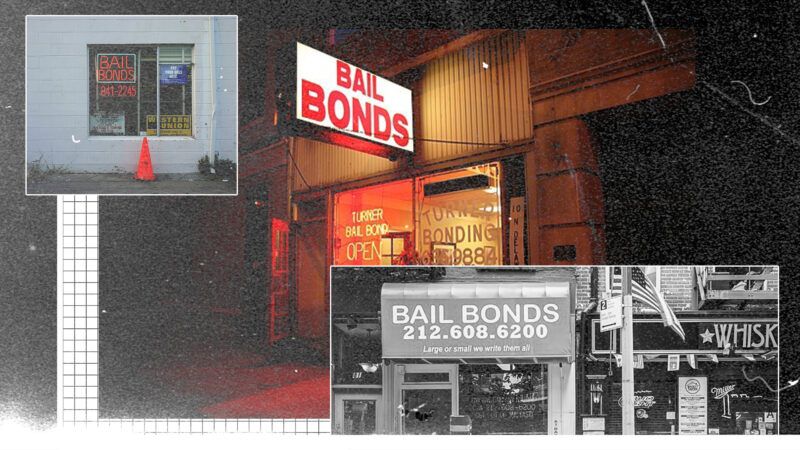Trump Directs DOJ To Penalize States and Cities That Use Cashless Bail
As part of his response to the alleged crime emergencies taking place nationwide, Trump signed an executive order restricting federal funding from jurisdictions with cashless bail policies.

On Monday, President Donald Trump, who has called cashless bail a "government-backed crime spree," signed an executive order to end the policy nationwide. The order restricts the allocation of "Federal policies and resources" to jurisdictions and states with cashless bail policies for "crimes that pose a clear threat to public safety and order." It tasks Attorney General Pam Bondi with creating a list of such jurisdictions within 30 days, at which point the federal funds of these jurisdictions may be suspended or terminated.
While the Eighth Amendment prevents excessive bail, defendants are not guaranteed an absolute right to bail. The Bail Reform Act of 1984 allows for the denial of bail for defendants who pose a flight risk, including those charged with violent crimes, offenses carrying life imprisonment or death, certain drug offenses, repeat felony offenders, and those posing a danger to society.
When a defendant is arraigned, a judge may release them on their own recognizance (a promise to appear), detain them, or release them on bail. With bail, a cash guarantee is provided and returned upon the conclusion of the case. Bail is determined by the jurisdiction where the crime is prosecuted, meaning in some jurisdictions, bail isn't required for lesser charges.
With cashless bail, defendants who are not deemed a flight risk or threat to public safety are released on a promise to return, without monetary collateral. Proponents argue that cash bail disproportionately impacts black and Latino populations, and ending this practice would reduce recidivism rates, since data suggest that longer pretrial detention is linked to quicker new arrests.
Multiple jurisdictions and states have experimented with cashless bail to varying degrees of success. In 2023, Illinois became the first state to abolish cash bail. Under the Pretrial Fairness Act, judges must instead hold detention hearings to determine whether a defendant is a flight risk or a public safety threat. "Not too different from how we release people now. It's just that money will no longer be a condition of release," NPR reported at the time.
It's unclear if these reforms had any impact on crime, although a study by Loyola University Chicago's Center for Criminal Justice notes that violent crimes and property crimes declined a year after cashless bail was enacted. That same report found that the percentage of people who missed a required court date declined from 25.1 percent to 22.8 percent.
New York's bail reform law, enacted in 2019 and amended in 2023, limits cash bail and pretrial detention primarily to violent felonies. Defendants are typically released on recognizance unless there's a flight risk, and New York law narrows the parameters for bail consideration to "the kind and degree of control or restriction necessary to reasonably assure the principal's return to court."
Following the passage of New York's laws, a 2023 study by the John Jay College of Criminal Justice found that the state's bail reforms neither increased nor decreased recidivism rates.
New Jersey's risk-based bail system, which was finalized in 2017, offers more judicial discretion than New York's, but still eschews cash bail for low-risk defendants in favor of a public safety assessment. In 2023, New Jersey's Joint Committee on Criminal Justice Reform attributed the state's rearrest rate of less than 1 percent to the 2017 bail reform, noting that over 80 percent of defendants who completed pretrial services were not rearrested.
The president also signed an executive order on Monday aimed at cashless bail policies in Washington, D.C., which have been in place since 1992. The order mandates that federal law enforcement in the city hold arrestees in federal custody and pursue federal charges and pretrial detention to ensure they aren't released from custody before trial.
It also authorizes Bondi to review the Metropolitan Police Department's retrial release policies and direct Democratic Mayor Muriel Bowser to align D.C. policies with the president's methods for dealing with crime in the city. Under the order, federal agencies must also identify actions, including funding allocation and federal services, to coerce D.C. to abandon its cashless bail system.
Last year, the city released 87 percent of the people arrested in D.C. without bail. Of those, 89 percent remained arrest-free, and 86 percent of released defendants made all scheduled court appearances, according to data from D.C.'s Pretrial Services Agency.


Show Comments (138)